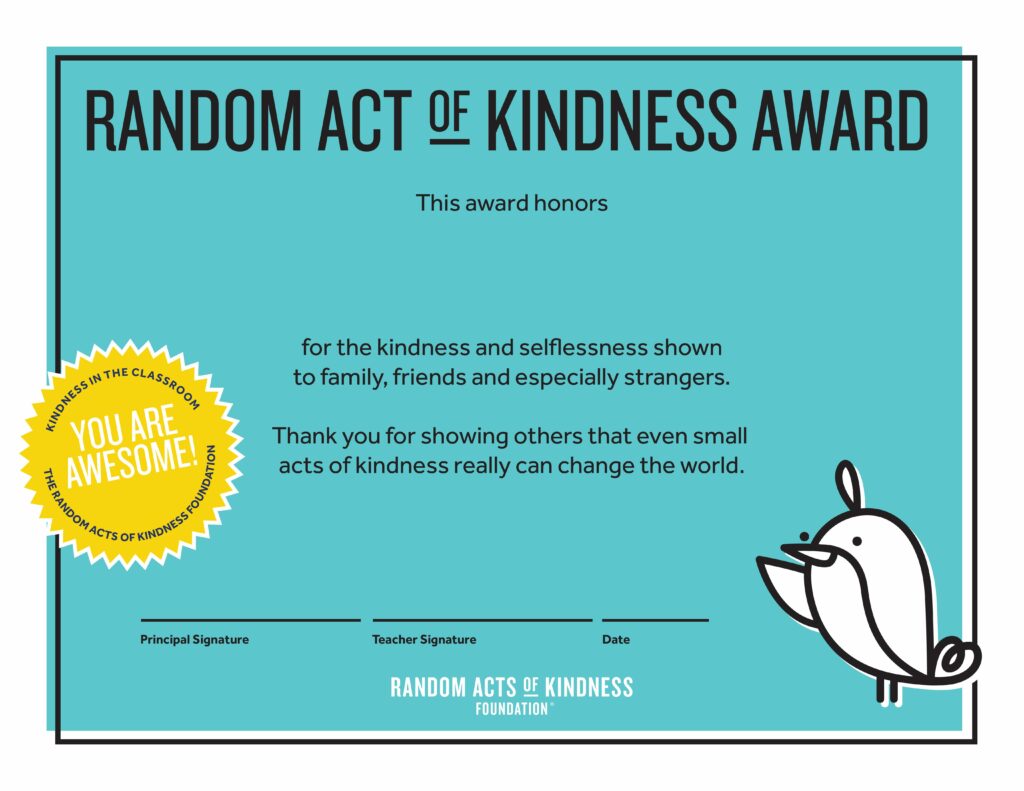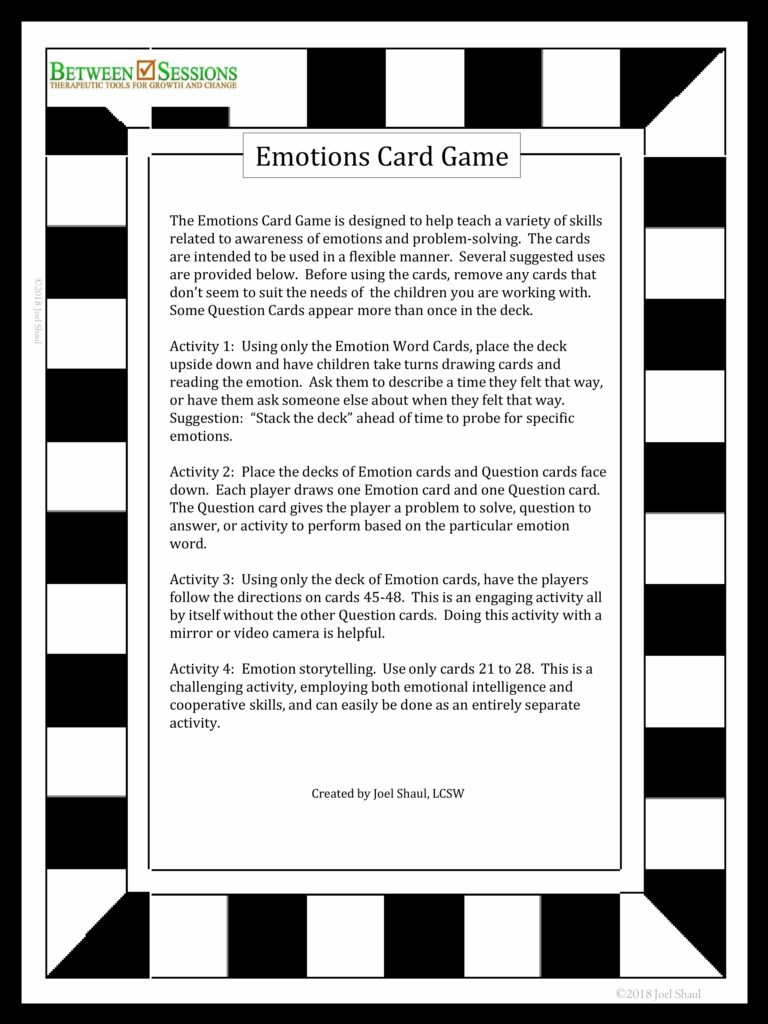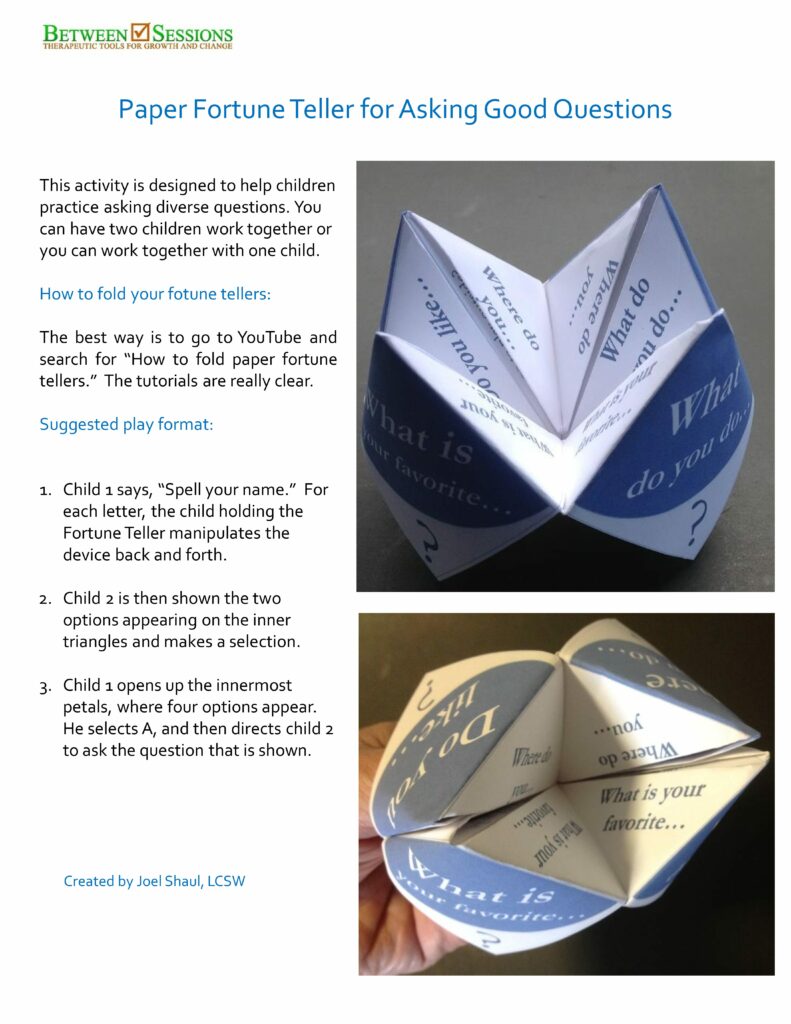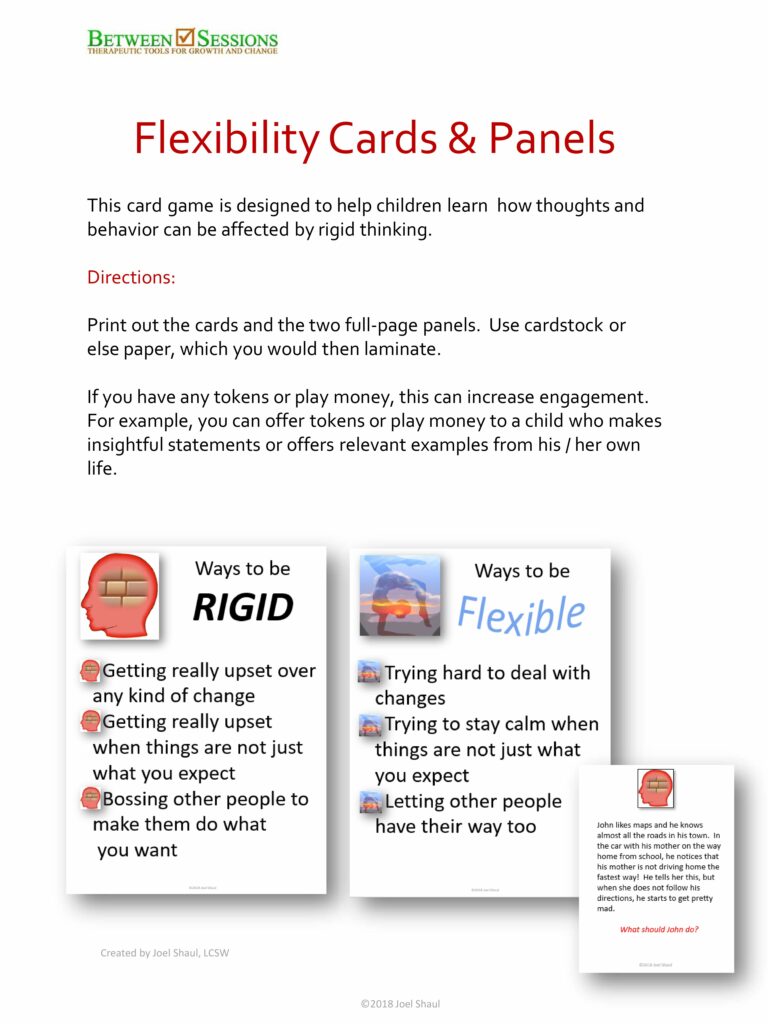This exercise is designed to help children discuss the value of making compromises (behavior, ADHD, 0919)
These cards remind people to think about others and look for opportunities for random acts of kindness. (empathy, social connection, 0819)
Give this award to children who demonstrate acts of kindness. Great for all kids, but particularly kids who are dealing with anger control issues and behavioral problems (0819)
This worksheet is designed to help children learn the importance of taking turns while talking in a group. (ADHD, Asperger Syndrome, ASD, Behavior, 0719)
This ebook teaches kids about the nature of stress and gives them suggestions on how to handle it. (0419(
This poster gives parents great ways to make kindness a part of their daily family experience. Great for all kids, but particularly kids with emotional or behavioral problems. (0319)
This is a clever and fun way to teach children that they can control their own behavior and take responsibility for finding solutions to their own problems. Kids are asks to crate a paper “remote control” which they can color in and individualize to fit their own specific needs. (ADHD, anger control, behavior, 0119)
The Emotions Card Game is designed to help teach a variety of skills to children and teens related to awareness of emotions and problem-solving. The cards are intended to be used in a flexible manner. The instructions describe four different games than can be played. 27 pages (1118, emotional intelligence)
This worksheet shows people how to cut out and fold a Fortune Teller, which is designed to help kids talk about themselves, their likes and dislikes, and more.
This activity for kids and teens teaches the importance of flexible social thinking. It includes two “poster” handouts to open a discussion on flexible thinking and a simple card game to practice new skills. (Asperger Syndrome, social intelligence, autism, ADHD, 1018)










